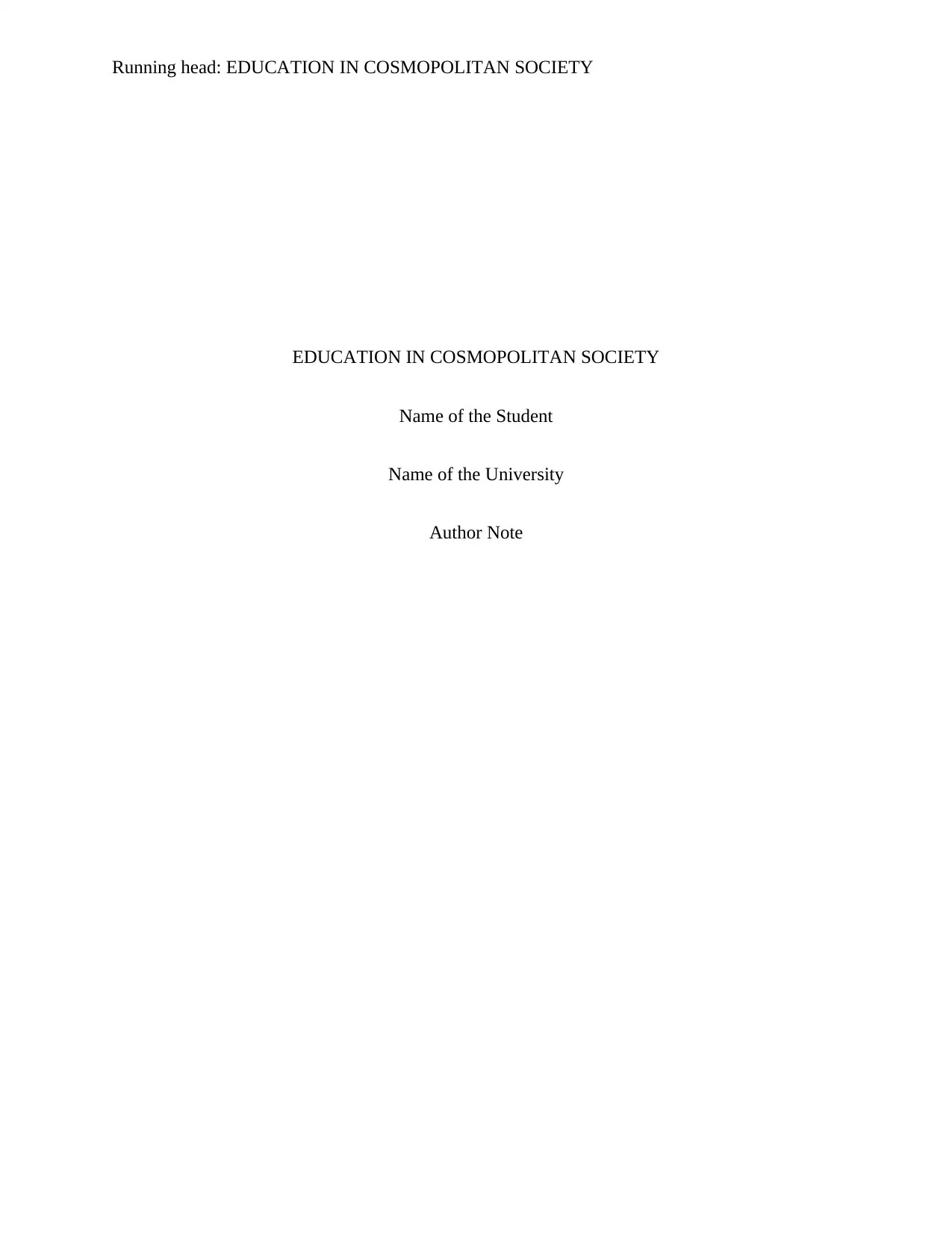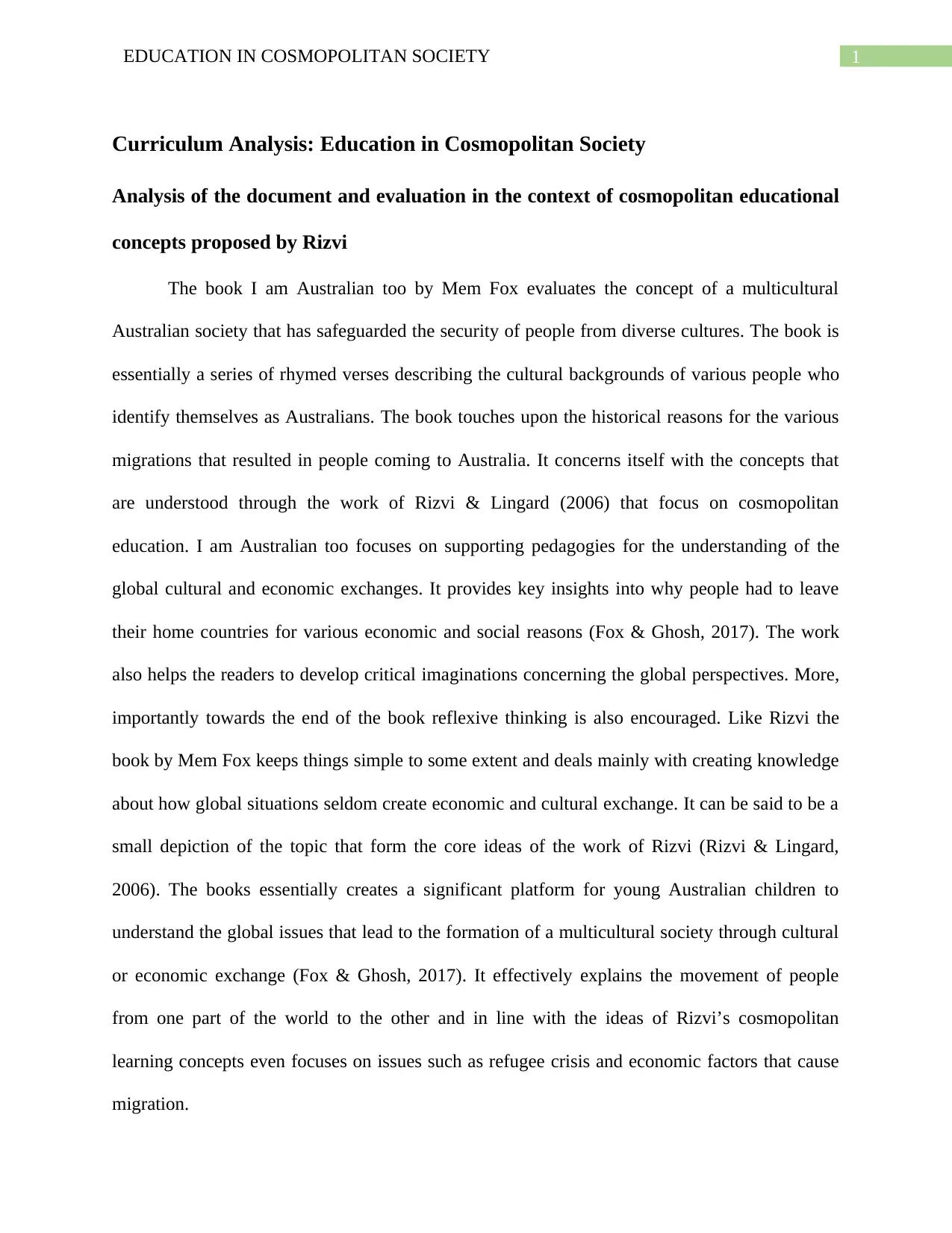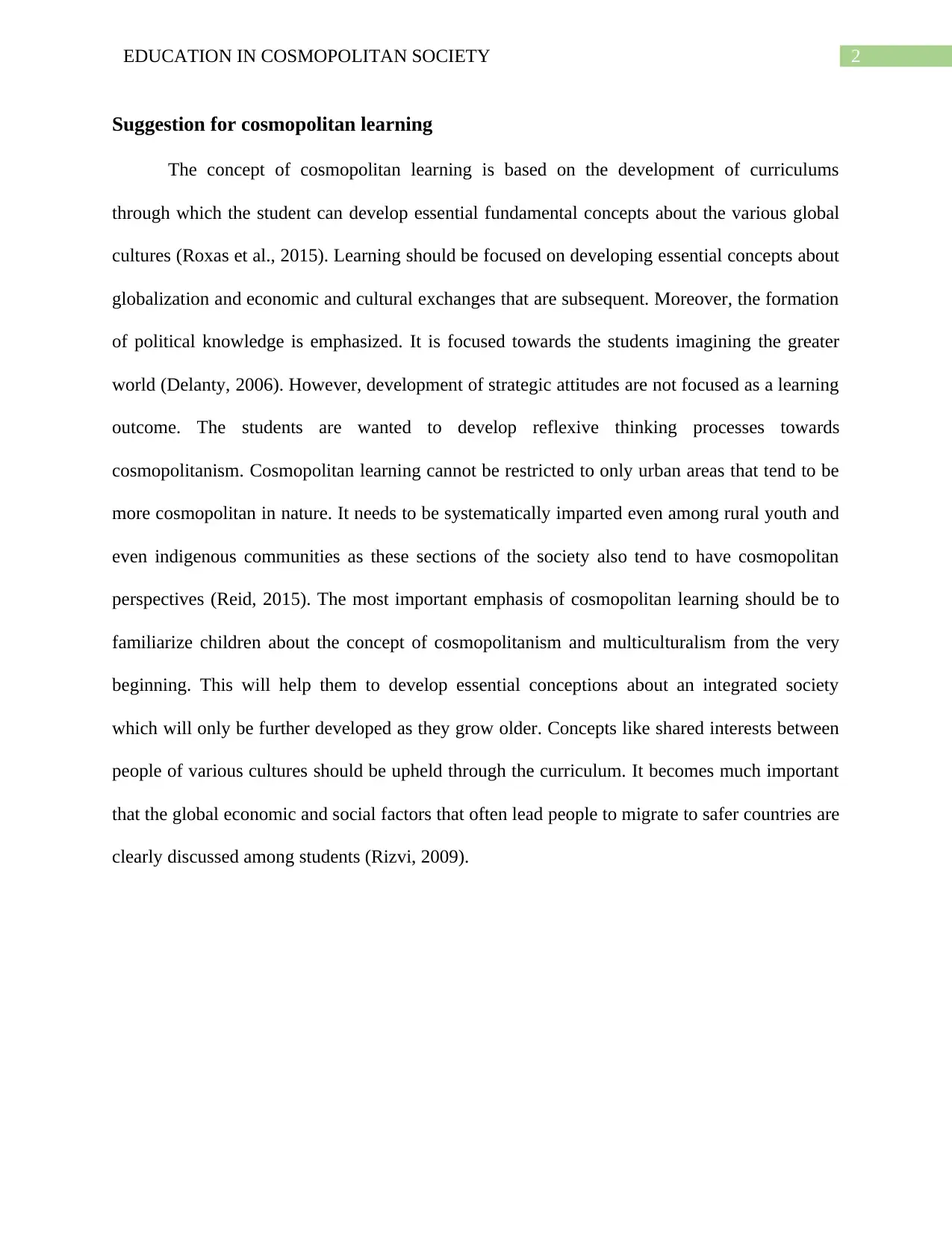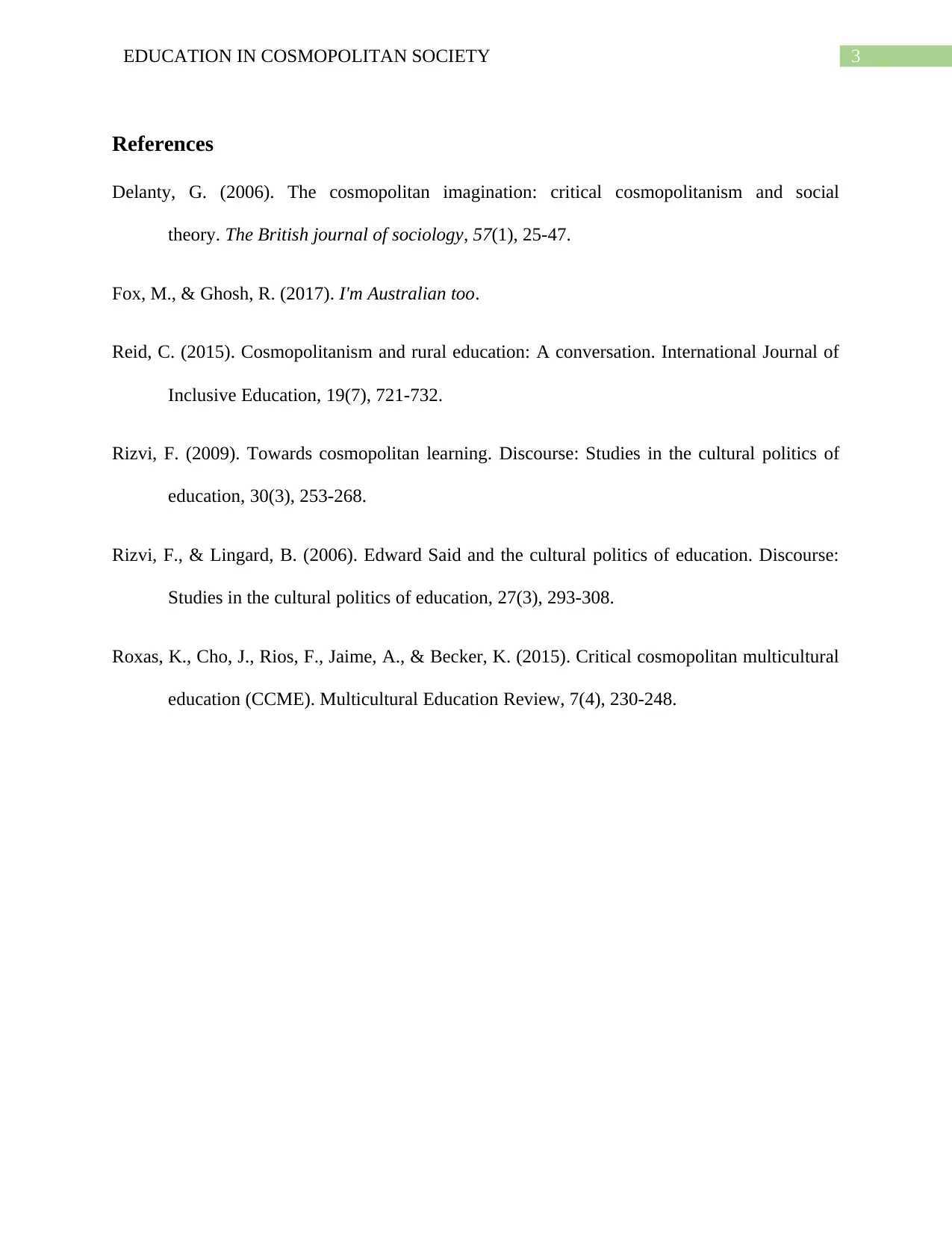University Education: Cosmopolitan Society Curriculum Analysis
VerifiedAdded on 2023/06/04
|4
|811
|434
Essay
AI Summary
This essay analyzes the concept of cosmopolitan education within the context of a multicultural society, using Mem Fox's book "I am Australian Too" as a case study. The essay explores how the book supports pedagogies for understanding global cultural and economic exchanges, mirroring the ideas of Rizvi & Lingard. It highlights the importance of developing critical imaginations and reflexive thinking, particularly in relation to issues like migration, refugee crises, and economic factors. The essay suggests that cosmopolitan learning should be introduced early in education, emphasizing shared interests between cultures and the importance of discussing global economic and social factors. It stresses the need to extend cosmopolitan learning beyond urban areas to include rural and indigenous communities, promoting a comprehensive understanding of multiculturalism and globalization. The essay concludes by emphasizing the development of essential concepts about global cultures and economic exchanges through the curriculum.
1 out of 4






![[object Object]](/_next/static/media/star-bottom.7253800d.svg)